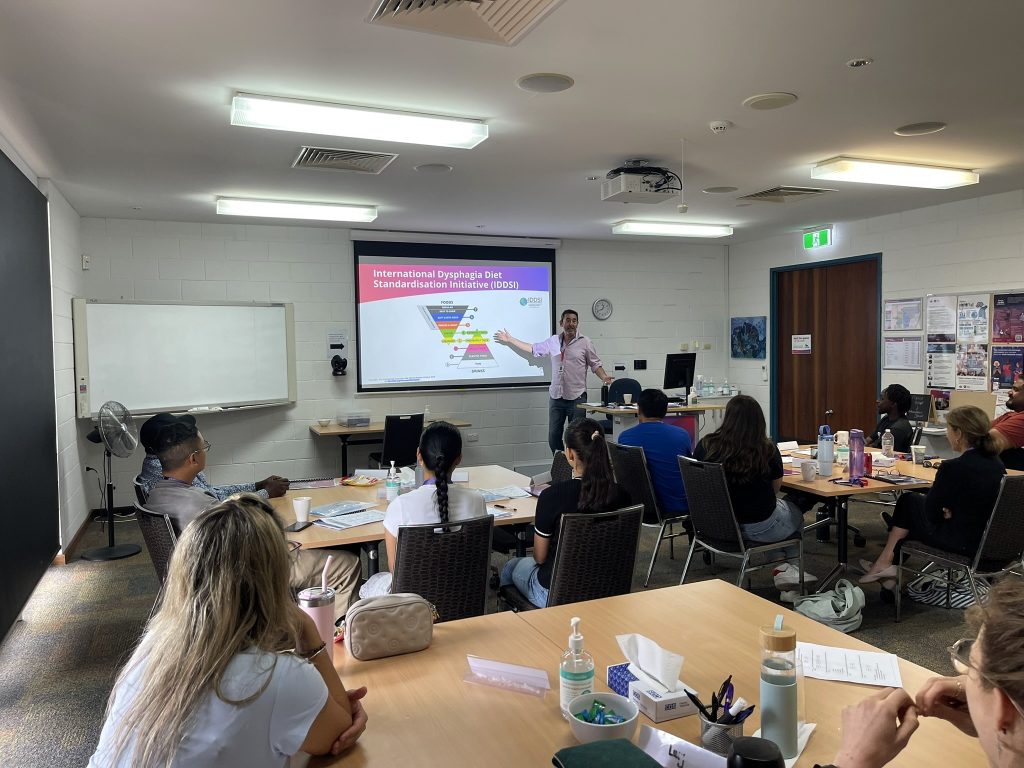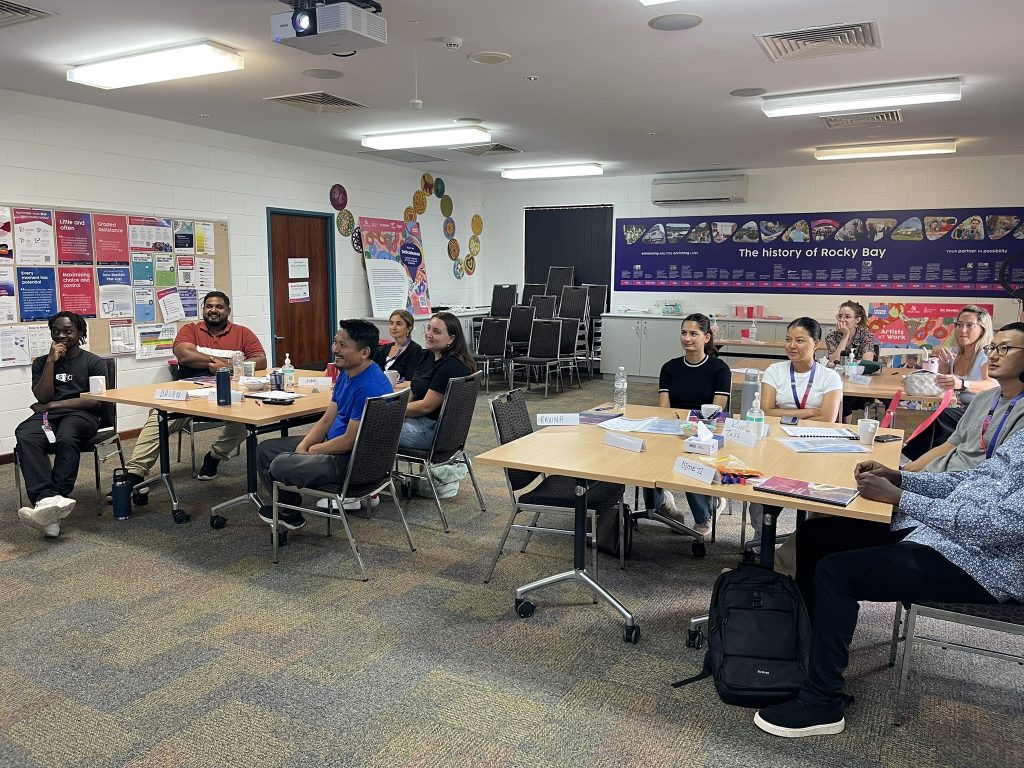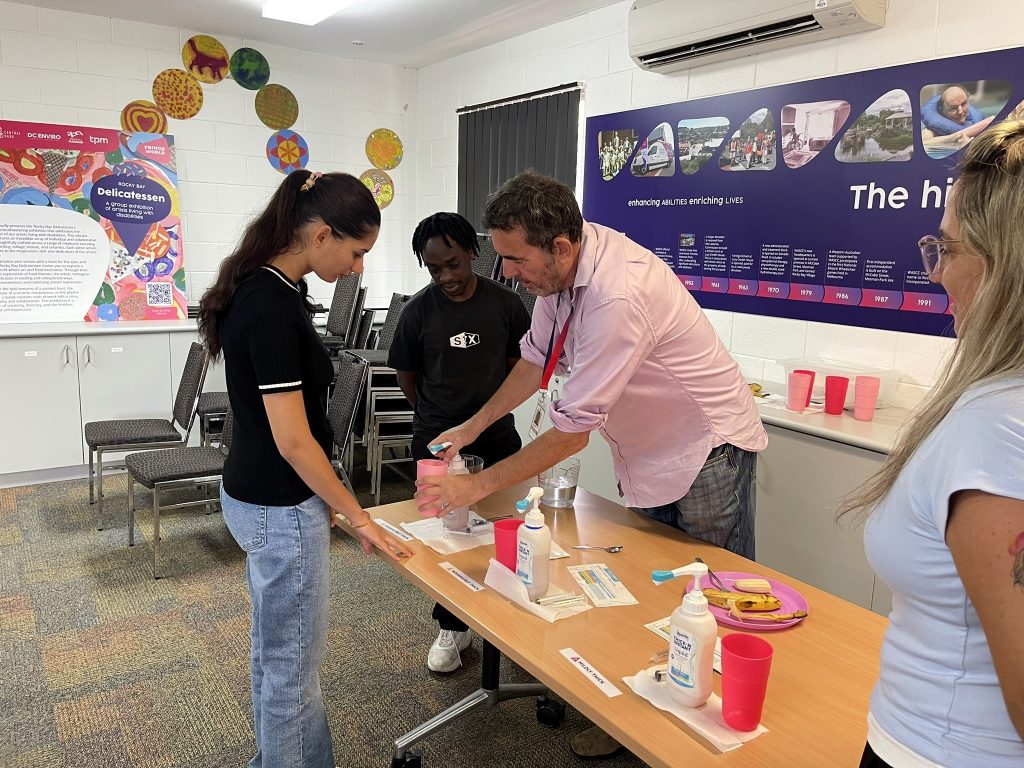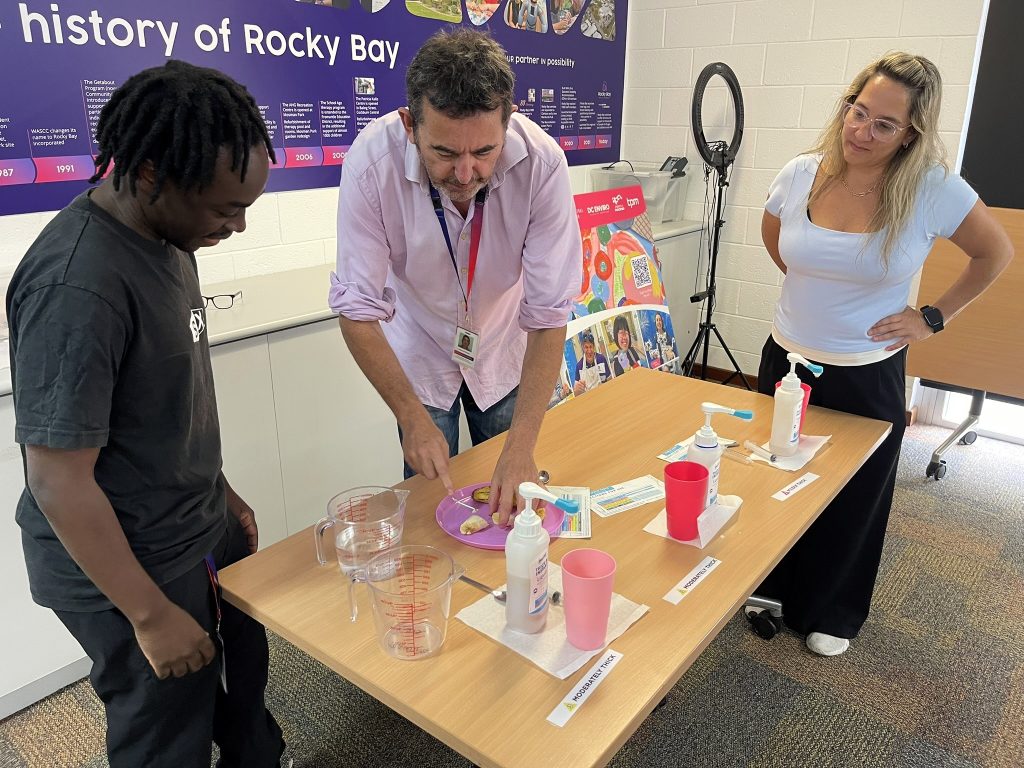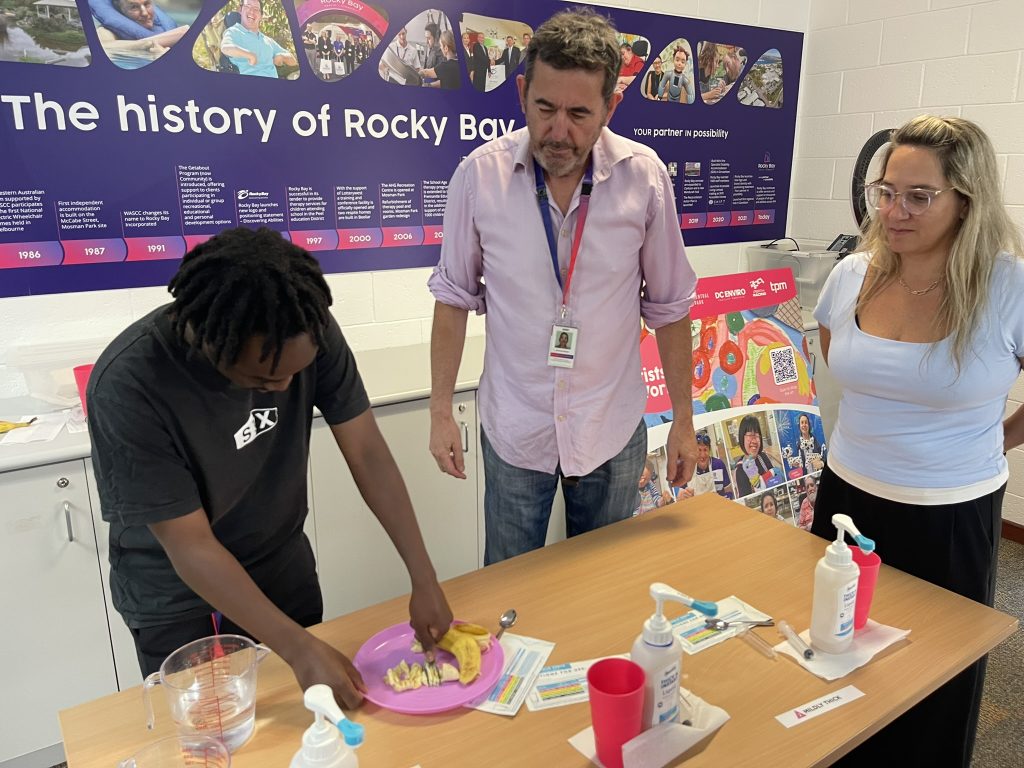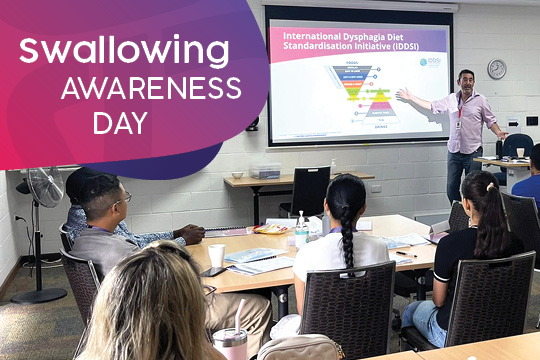To celebrate Swallowing Awareness Day, we recently chatted with Clinical Operations Manager Jess. Jess is responsible for developing the content for our Dysphagia training, which ensures our staff are well equipped to support our staff who have swallowing difficulties.
Can you tell us a speech pathologist’s role in developing the Dysphagia training content?
Speech pathologists at Rocky Bay have the training and knowledge in mealtime management and dysphagia. An experienced speech pathologist regularly reviews and updates the content of internal training to ensure it meets evidence based practice, NDIS practice standards and is engaging for participants.
What are the key objectives of the Dysphagia training, and why are they important?
Rocky Bay runs induction and annual refresher sessions for all disability support workers.
Learning outcomes – induction:
- Obtain a basic understanding of the normal swallow and abnormal swallow.
- Identify and respond to customers showing signs of swallowing difficulties or who are at risk of experiencing dysphagia.
- Interpret and implement Mealtime Management and Dysphagia plans.
- Demonstrate preparation of a range of thickened liquids according to IDDSI Standards and tests.
What are some common misconceptions about Dysphagia that you aim to address through the training?
- The speech pathologist recommends more than just modification of diet and fluids.
- There are numerous strategies recommended to maximise the customer’s level of independence when eating and drinking, as well as their safety.
- For example: modified equipment (e.g., type of cup, use of a straw, modified cutlery), level of supervision or assistance, positioning requirements.
- Misconception: Incidents need to occur before a change is made.
- Reality: Mealtime management and dysphagia assessment involves thorough risk assessment to minimise the chance of incidents occurring.
What message do you hope participants take away from the training?
- Understand the risk that dysphagia presents to the health and well-being of an individual in terms of nutrition, hydration and respiration.
- Recognise signs and symptoms of eating, drinking and swallowing difficulties.
- Read and follow the recommendations of the Mealtime Management and Dysphagia plan.
- Ask if you are not sure.
- Escalate concerns to your line manager.
With Swallowing Awareness Day in mind, why is it so important to raise awareness about Dysphagia?
- Health consequences of dysphagia include risks to nutrition, hydration and respiration (breathing), which can lead to aspiration pneumonia, reduced breath capacity, dehydration and/or malnutrition and choking. (Coughing is a protective factor.)
- Eating and drinking is a social occasion! We want our customers to participate as safely as possible and enjoy the experience.
Pictured: Our Training Officer Howard delivering an engaging session to our newest team members. A big thank you to Howard for making learning both fun and engaging.
